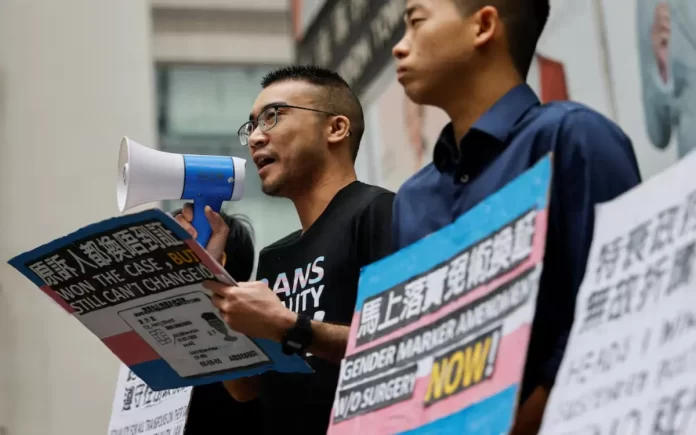Hong Kong: Hong Kong authorities announced on Wednesday that transgender individuals who have not undergone full sex reassignment surgery will be permitted to change their gender marker on their ID cards. However, activists have raised concerns over the stringent new surgical and hormonal requirements imposed by the revised regulations.
The decision follows a landmark ruling by the Court of Final Appeal last February, which sided unanimously with appeals filed by transgender activists. The court deemed the previous policy, which mandated full sex reassignment surgery for gender marker changes, a violation of transgender individuals’ rights.
This victory, celebrated by activists like Henry Tse and another appellant known as Q, was seen as a significant step forward for transgender rights in the city. However, Tse’s subsequent legal challenge over delays in implementing the ruling underscores ongoing frustrations within the community.
In line with the court’s directive, the government outlined revised criteria for gender marker changes, including surgical requirements such as breast removal for transgender men and genital removal for transgender women. Additionally, applicants must undergo continuous hormonal treatment for a minimum of two years prior to applying for the gender change.
Also Read: Bank of America Raises 2024 Oil Forecasts Amid Tightening Supply and Geopolitical Risks
While some welcomed the updated policy, concerns have been raised about the invasive nature of the medical requirements. Wong Hiu Chong, representing Tse, expressed apprehension over the emphasis on medical tests and privacy infringements resulting from mandatory blood reports.
Zephyrus Tsang of Quarks, an organization supporting transgender youth, condemned the surgical requirements as a violation of individuals’ physical integrity. Similarly, Christine Chu, a transgender woman and legal manager at Quarks, highlighted the unfairness of mandating genital removal, describing it as a form of forced sterilization.
Despite Hong Kong’s status as a former British colony with a high degree of autonomy, transgender individuals still face stigma within Chinese society. LGBTQ activism has also encountered obstacles, with recent crackdowns reflecting broader challenges to civil liberties.



